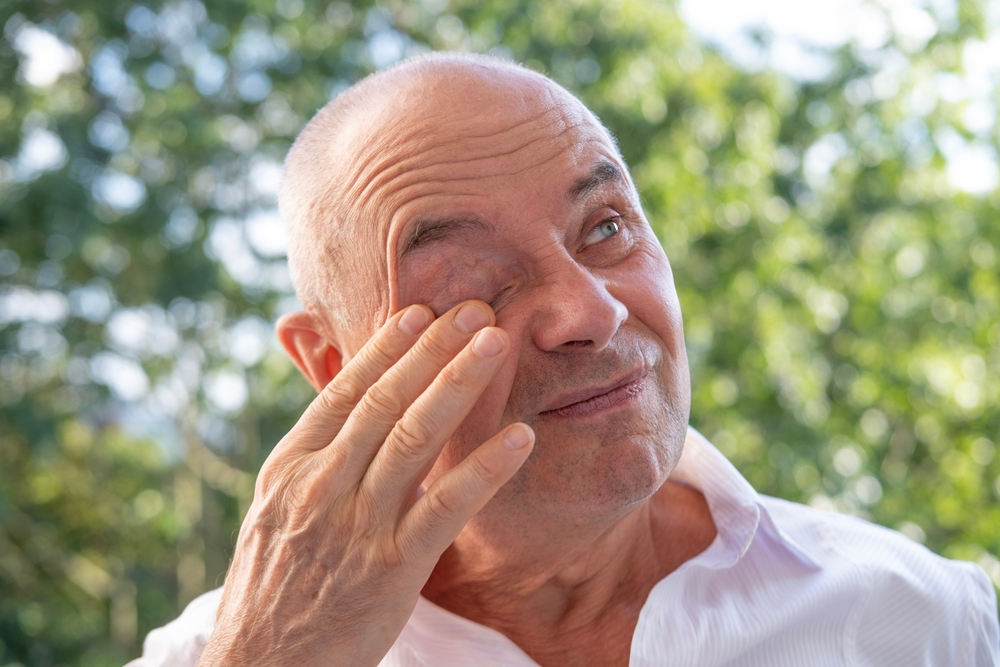
Cataracts: Symptoms, Treatments, and What You Need to Know
Cataracts are a common age-related condition that affects millions of people worldwide. While often associated with aging, cataracts can also occur due to other factors. Understanding the symptoms, available treatments, and when to seek medical help can significantly impact your eye health and vision. Drs. Stein and Goldschneider are here to provide expert guidance on cataracts and how to manage this condition effectively.
What Are Cataracts?
A cataract is a clouding of the eye’s natural lens, which lies behind the iris and the pupil. The lens works to focus light onto the retina, allowing you to see clearly. As cataracts develop, they cause the lens to become cloudy, leading to blurred or impaired vision. Cataracts can affect one or both eyes, but they cannot spread from one eye to the other.
Symptoms of Cataracts
Cataracts typically develop slowly over time, and in their early stages, they may not significantly affect your vision. However, as the cataract progresses, you may start to notice more prominent symptoms, such as:
• Blurred or cloudy vision: Objects may appear hazy or out of focus, making it difficult to see clearly.
• Sensitivity to light: Bright lights may cause discomfort or glare, especially when driving at night.
• Difficulty seeing at night: Cataracts can make it harder to see in low-light conditions, increasing the risk of accidents or falls.
• Fading or yellowing of colors: Colors may lose their vibrancy, appearing faded or tinged with yellow.
• Halos around lights: You might notice rings or halos around light sources, particularly at night.
• Frequent changes in prescription: Needing frequent updates to your glasses or contact lenses could be a sign of cataract development.
If you experience any of these symptoms, it’s important to schedule an eye exam with Drs. Stein and Goldschneider to assess your eye health and determine if cataracts are the cause.
Causes and Risk Factors
While aging is the most common cause of cataracts, other factors can increase your risk, including:
• Genetics: A family history of cataracts can make you more prone to developing them.
• Eye injuries: Trauma to the eye can lead to the formation of cataracts.
• UV radiation: Prolonged exposure to ultraviolet (UV) rays from the sun can increase your risk of cataracts.
• Smoking and alcohol: These habits have been linked to an increased likelihood of cataracts.
• Medical conditions: Diabetes, high blood pressure, and obesity can elevate your risk.
• Medications: Prolonged use of corticosteroids and certain other medications can contribute to cataract formation.
Treatment Options for Cataracts
The most effective treatment for cataracts is surgery, which is generally safe and highly successful. Cataract surgery involves removing the cloudy lens and replacing it with a clear, artificial lens called an intraocular lens (IOL). The procedure typically takes less than an hour and can be performed on an outpatient basis. Here are the key aspects of cataract surgery:
• Pre-surgical evaluation: Your optometrist will conduct a comprehensive eye exam to determine the severity of your cataract and plan the surgery.
• Phacoemulsification: This is the most common cataract surgery technique, where the cloudy lens is broken up using ultrasound waves and removed through a tiny incision.
• Intraocular lens (IOL) placement: After the cataract is removed, the surgeon will insert the IOL to restore clear vision. There are different types of IOLs, including monofocal, multifocal, and toric lenses, which can be customized to meet your vision needs.
• Post-surgical care: Most patients experience improved vision within a few days of the procedure, and your ophthalmologist will provide detailed aftercare instructions to ensure a smooth recovery.
When Should You Consider Cataract Surgery?
If your cataracts are starting to interfere with your daily activities—such as reading, driving, or working—it may be time to consider surgery. Cataract surgery is highly effective at restoring vision, and for many people, it can be life-changing. Drs. Stein and Goldschneider will help you determine the right time for surgery based on your individual needs and lifestyle.
Preventing Cataracts
While cataracts cannot always be prevented, there are steps you can take to reduce your risk:
• Wear sunglasses: Protect your eyes from harmful UV rays by wearing sunglasses that block 100% of UVA and UVB rays.
• Eat a healthy diet: Foods rich in antioxidants, such as fruits and vegetables, can support eye health and reduce the risk of cataracts.
• Quit smoking: Smoking is a major risk factor for cataracts, so quitting can significantly benefit your eye health.
• Manage health conditions: If you have diabetes or other chronic conditions, keeping them under control can lower your risk of cataracts.
Book Your Eye Exam with Drs. Stein and Goldschneider Today
Cataracts are a common condition, but they don’t have to be a permanent hindrance to your quality of life. With expert care from Drs. Stein and Goldschneider, you can regain clear vision and enjoy the activities you love. Early detection and treatment are key to maintaining optimal eye health.
If you’re experiencing symptoms of cataracts or want to learn more about treatment options, contact Drs. Stein and Goldschneider to schedule a comprehensive eye exam. Visit our office in Blackwood, New Jersey, or call (856) 408-1800 to book an appointment today.





